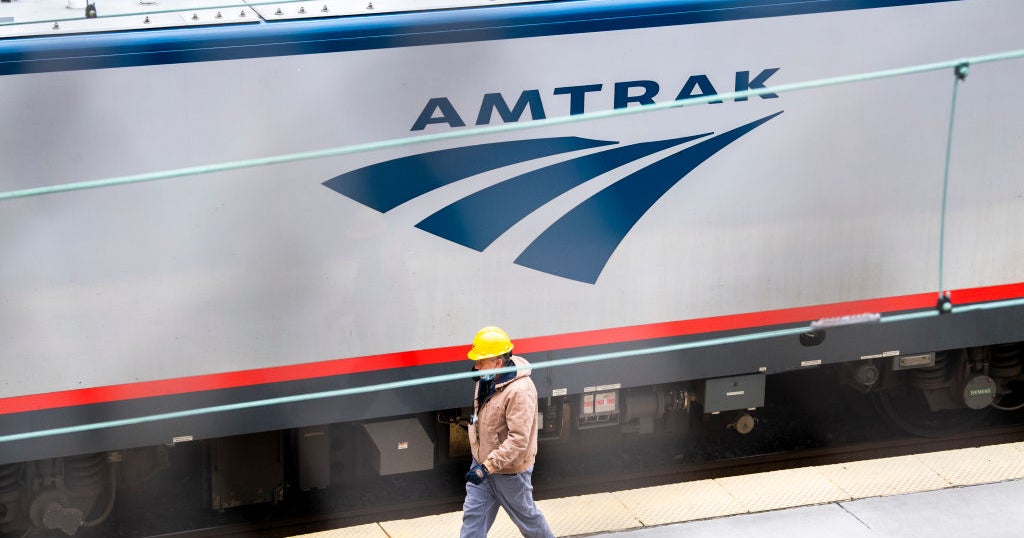Measles Alert: Amtrak Passenger Sparks Health Concerns in D.C.
A confirmed case of measles in an Amtrak passenger traveling to Washington D.C. has raised alarms among health officials. This incident underscores the persistent and often underestimated risks posed by vaccine-preventable diseases, particularly in crowded public transportation settings. As the news spreads, both health authorities and the public are urged to remain vigilant, reminding us of the importance of vaccination and the potential consequences of outbreaks.
The Incident: What Happened?
On a recent train journey, an individual traveling on Amtrak was diagnosed with measles, a highly contagious viral disease. This person, whose specific travel details have not been disclosed, prompted immediate action from health officials upon arrival in Washington D.C. Measles can spread quickly through respiratory droplets, making public transportation an ideal setting for transmission.
Health officials quickly initiated a response plan to notify passengers and staff who may have been exposed. They urged anyone who traveled on the same train or visited related sites during the exposure period to monitor for symptoms, which typically include:
- High fever
- Cough
- Runny nose
- Red, watery eyes
- A rash that usually starts on the face and spreads
The Washington D.C. Department of Health has been proactive in providing information and resources to the public, reinforcing the importance of vaccination as the most effective means of preventing measles outbreaks.
The Importance of Vaccination
The measles vaccine, usually administered as part of the MMR (measles, mumps, rubella) vaccine, has proven extremely effective in preventing the disease. The Centers for Disease Control and Prevention (CDC) reports that two doses of the MMR vaccine are about 97% effective at preventing measles. Yet, despite the availability of a safe and effective vaccine, some communities continue to experience outbreaks, often due to lower vaccination rates.
According to the CDC, measles can lead to serious complications, including:
- Pneumonia
- Encephalitis (swelling of the brain)
- Hospitalization
- Death
These potential outcomes highlight the critical need for community immunity, also known as herd immunity, which occurs when a significant portion of the population is vaccinated, thus providing protection for those who cannot be vaccinated, such as infants and individuals with certain health conditions.
Public Transportation: A Risky Environment
Public transportation systems, like Amtrak, are particularly vulnerable to the spread of infectious diseases. Crowded environments where individuals are in close proximity can facilitate the transmission of viruses like measles. This situation is exacerbated by the fact that symptoms of measles do not appear until 7 to 14 days after exposure, meaning that an infected person may be unknowingly spreading the virus during this incubation period.
Health officials recommend precautions for travelers using public transportation, including:
- Ensuring vaccinations are up to date.
- Practicing good hygiene, such as handwashing and using hand sanitizer.
- Avoiding travel when sick.
- Wearing masks in crowded settings, especially during outbreaks.
Community Response and Awareness
The response to the Amtrak measles alert has been swift, with health departments taking the opportunity to educate the public about the importance of vaccination. Community outreach efforts include:
- Public service announcements on television and radio.
- Social media campaigns emphasizing the safety and effectiveness of vaccines.
- Free or low-cost vaccination clinics, especially in areas with lower vaccination rates.
These initiatives aim to bolster community awareness and encourage vaccination, particularly in light of the measles case linked to the Amtrak journey. It’s crucial for individuals to understand that measles is not just a personal health issue but a public health concern that can affect the entire community.
Lessons Learned and Moving Forward
The Amtrak measles alert serves as a stark reminder of the risks associated with vaccine-preventable diseases. While the majority of individuals are vaccinated and protected, outbreaks can still occur when vaccination rates dip. This incident emphasizes the need for ongoing public health education and engagement.
As we move forward, it is essential for individuals to take personal responsibility for their health and the health of those around them. Vaccination not only protects individuals but also strengthens community immunity.
In addition, public health officials must continue to monitor vaccination rates and respond swiftly to outbreaks. Increased funding for vaccination programs, especially in underserved communities, can help bridge the gap and reduce the risk of future outbreaks.
Conclusion
The recent measles alert linked to an Amtrak passenger in Washington D.C. has opened the door to important discussions about public health, vaccination, and community responsibility. As we navigate the complexities of infectious diseases in a globalized world, it is paramount to remain vigilant and proactive.
By prioritizing vaccination and public health initiatives, we can work together to prevent the spread of diseases like measles, ensuring a healthier future for everyone. The lessons learned from this incident should inspire greater commitment to vaccination, reminding us that protecting ourselves also means protecting our communities.
See more WebMD Network



